By Ryan Hecht, Marketing Director at the Arvada Chamber
The Arvada Chamber hosted the State of Homelessness on January 19 as part of its Community Impact Forum series. Britta Fisher (Colorado Coalition for the Homeless) provided a keynote overview of homelessness data in Jefferson County and then joined a panel discussion with Cassie Ratliff (Family Tree), Scott Spears (Olde Town Arvada Business Owner), Arvada Municipal Judge Kathryn Kurtz, and Kelly Dunkin (Colorado Gives Foundation).
View a video recording of the event here. Six key takeaways from the forum:
In Jefferson County, 854 people are experiencing homelessness on a single night.
This is a 73% increase from 2022, when 493 people were counted. Half of the respondents were experiencing homelessness for the first time.
A third of the respondents were chronically homeless, meaning that they experienced homelessness for at least a year (or repeatedly) while living with a disabling condition. Jefferson County has seen an increase in households with children and youth-only households experiencing homelessness; the county reported 1,637 students experiencing homelessness.
Currently, Arvada has 57 participants in its court-appointed One Small Step Program
The One Small Step (OSS) Program is a specialized problem-solving Court designed to assist defendants who are experiencing homelessness. These defendants are referred to OSS by the Community, Outreach, Resource, and Enforcement (CORE) team of the Arvada Police Department. Once at Court, they work with the City Prosecutor and the Senior Probation Officer to craft a compliance plan formulated to increase stability in the defendant’s life. In addition, they meet with the AHNP Homeless Navigators to determine suitable housing options.
Judge Kurtz says the participants have one rule: they must show up every Tuesday afternoon to meet with service providers. The goal is to get them to a better place in life. “We measure success differently,” said Judge Kurtz. “For a lot of folks that’s just showing up. Some obtain housing or employment or get sober.” Last year, the program saw 9 graduates.
Homelessness in Olde Town has “Dramatically changed.”
Scott Spears, who owns five businesses in Olde Town Arvada and is president of the Olde Town Business Improvement District says he has seen a lot of changes in 14 years. The homeless population is “A lot more in our face. It’s changing.”
“It used to be four or five homeless gentlemen that we all knew,” said Spears. “Now it’s new people every single day. They’re not trying to hide. Their items are everywhere. Crime has gone up dramatically. It’s daily that I get a text from one of our employees that something has happened or they’ve called the police. People do not feel safe. It’s hurting our bottom line. If businesses are losing money, it could lead to more vacancies. It’s getting worse and worse.”
Mission Arvada is a day shelter and housing navigation center established by The Rising Church in Olde Town Arvada. According to its 2022 Data Summary, Mission Arvada provided services to 1,188 unique individuals in 2022, compared to 282 in 2019.
The hidden costs of homelessness add up
In 2021, researchers at the University of Colorado Denver and the Common Sense Institute reported that Denver spends between $42,000 and $104,000 each year per person experiencing homelessness. That total includes city government spending and spending on homelessness by charitable groups and Denver Health.
At the forum, Judge Kurtz mentioned a large number of complaints that the City receives are about homeless camps. Cleaning up these camps is costly; one camp cost the City $16,000 to clean up. Judge Kurtz also mentioned that 70% of criminal violations are committed by people experiencing homelessness. Many are trespassing, littering, and otherwise committing “crimes for existing.” These violations accrue substantial court costs and subsequent program resources.
“We’re all seeing the impacts when we’re not doing the things at scale that we can,” said Britta Fisher. “When we actually house people, it’s much cheaper than the court costs, business costs, etc. We can afford to do it, because we know we cannot afford to not do it.”
Housing First initiatives have proven outcomes
The Denver Supportive Housing Social Impact Bond Initiative (Denver SIB), launched in 2016, aimed to increase housing stability and decrease jail stays among people who were experiencing chronic homelessness and had frequent interactions with the criminal justice and emergency health systems. The initiative provided supportive housing (a permanent housing subsidy and intensive services) using a Housing First approach, which aims to quickly get people out of homelessness and into housing, without requiring that participants meet preconditions or requirements.
Residents at all facilities are offered wraparound services including onsite case management, counseling, substance use treatment, psychiatric care, medical care, landlord relations, employment services, etc.
The study found that 86 percent of the participants with supportive housing remained in stable housing one year later. At two years, the housing retention rate for living participants was 81 percent. At year 3, the rate was 77 percent.
Universal Basic Income shows promise in Denver; may also be a tool for preventative measures
The Denver Basic Income Project provided no-strings-attached cash payments at different scales and increments to 800 homeless people in the Denver area over the last year. Early returns of the project are positive, with participants staying in housing more, sleeping outside less, and overall feeling more confident about their future housing.
“What we’re seeing now [with funding] is a prioritization of prevention,” said Cassie Ratliff. “We have to stop people from entering homelessness.”
Judge Kurtz was not optimistic about Universal Basic Income (UBI) as a solution for the defendants in her courtroom. Her biggest concern would be controls of where the money would go. “I’m seeing a lot of defendants have specific barriers to getting into housing,” said Judge Kurtz. “Addictions, criminal history, documentation like birth certificates – it takes months to obtain some of these documents. As a preventative measure, [UBI] is a good idea, but it has to include assertive wraparound services so that people have the foundation to retain housing. A lot of my defendants involve high rates of substance use and mental health issues and they’re bombing out of housing because of those concerns.”
Judge Kurtz’s wish list for homelessness solutions: more access to substance use treatments, more access to mental health treatment, wraparound services for those who do get into housing, congregate residential services for homeless youth, emergency shelters, more funding for housing vouchers, less restrictions for housing vouchers, and more affordable housing.
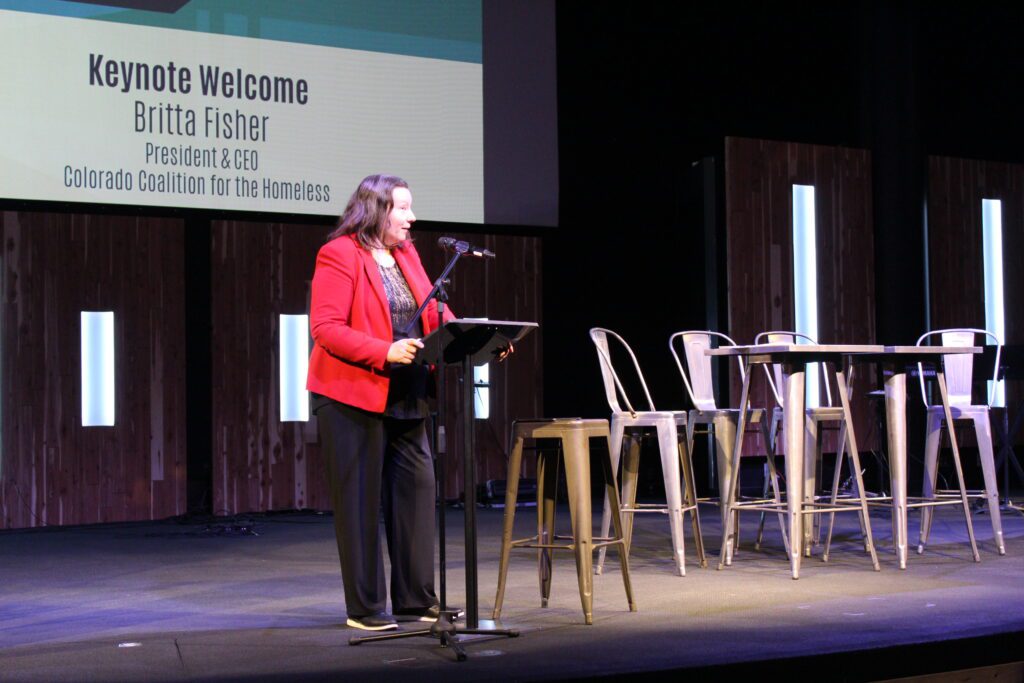
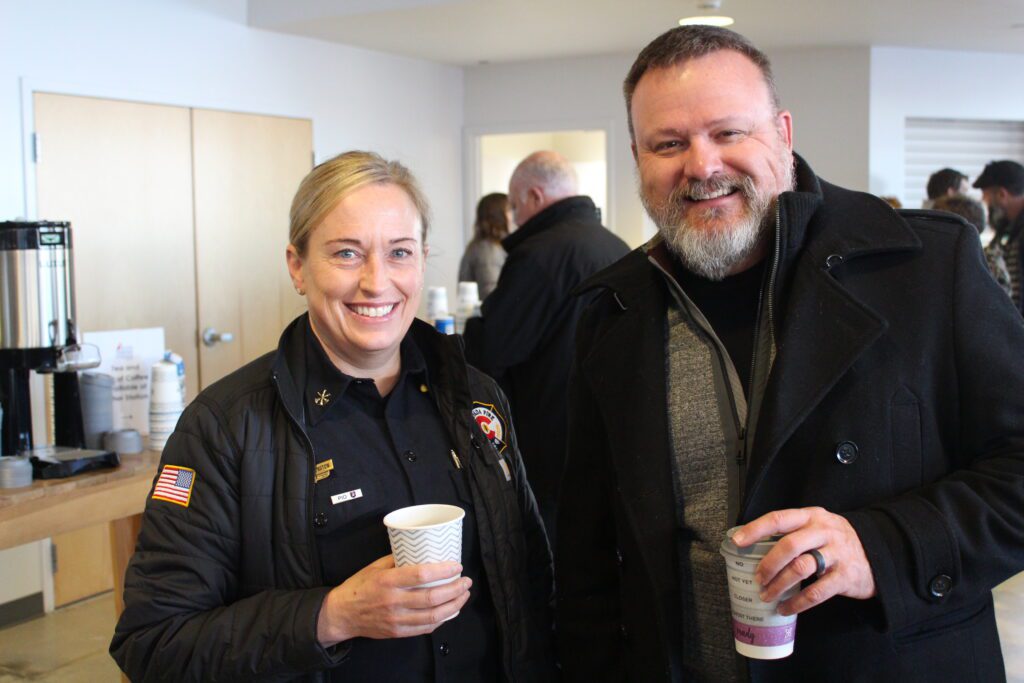

Resources:
- View a video recording of the event
- View the presentation PDF
- Mission Arvada 2019-2022 Data Summary
- City of Arvada Homelessness Resources
- Denver Supportive Housing Social Impact Bond Initiative

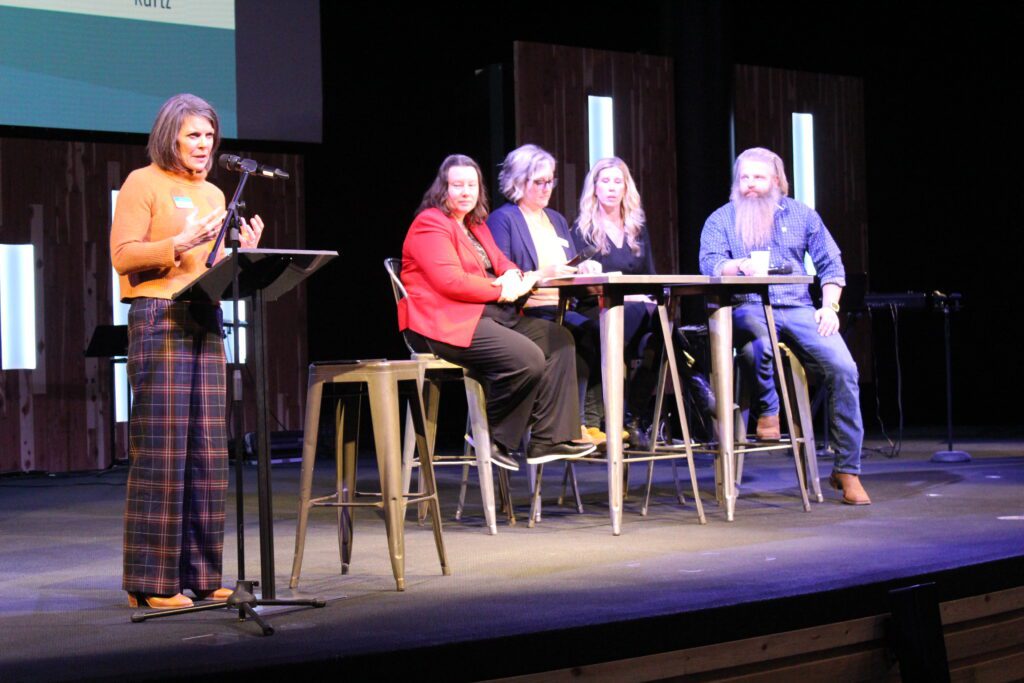
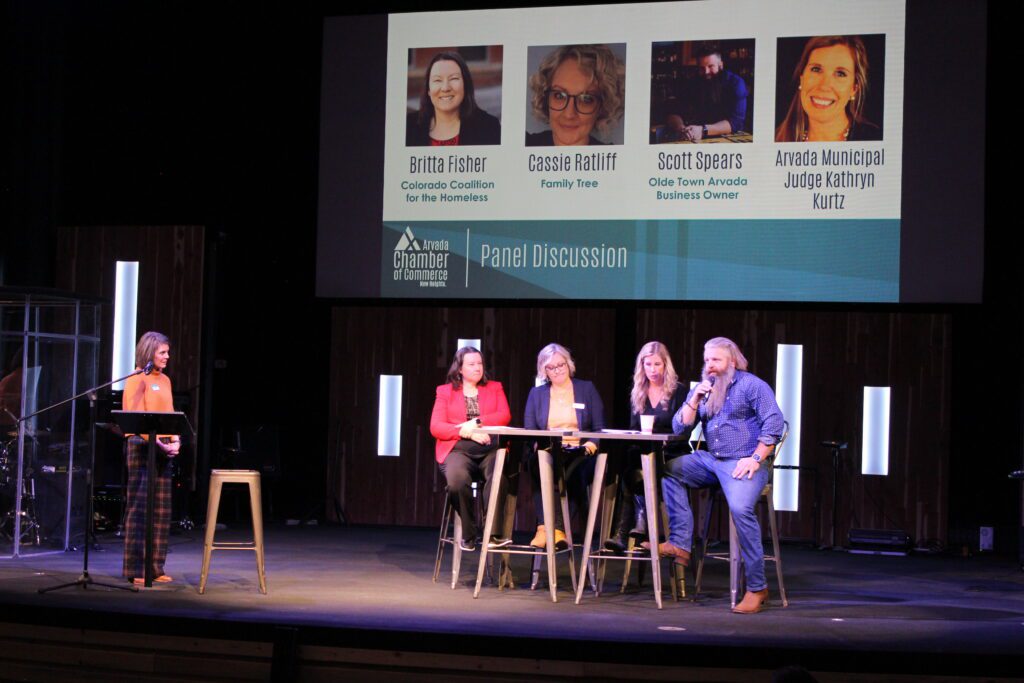

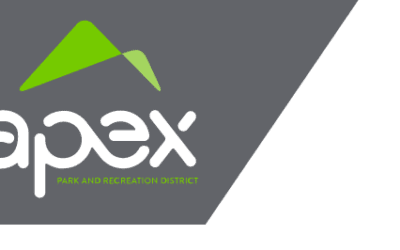
0 Comments